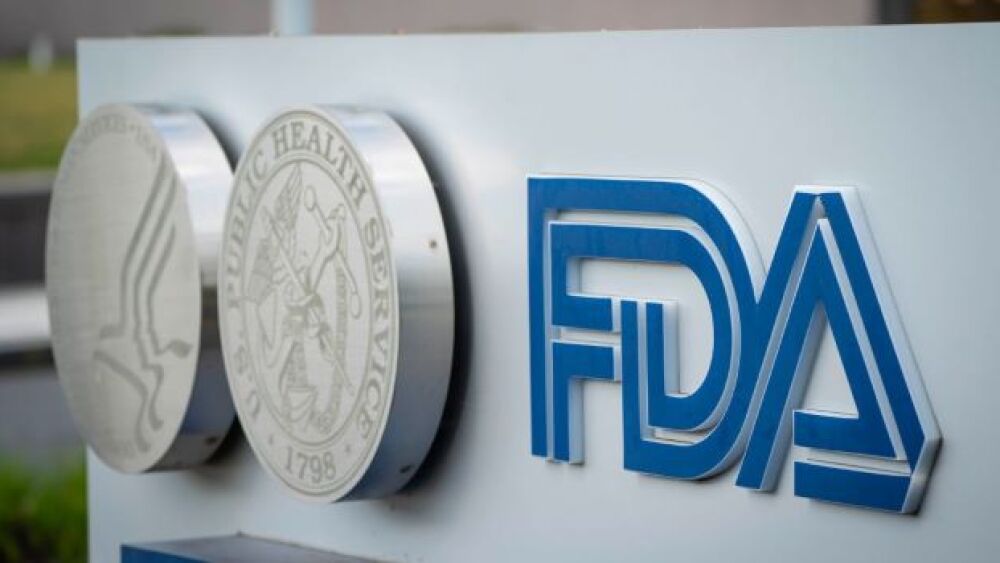The U.S. Food and Drug Administration said that data from BrainStorm Cell Therapeutics’ ALS Phase III trial does not meet the threshold of substantial evidence needed to support a BLA for the company’s ALS NurOwn therapy.
Sarah Silbiger/Getty Images
The U.S. Food and Drug Administration (FDA) said that data from BrainStorm Cell Therapeutics’ amyotrophic lateral sclerosis (ALS) Phase III trial does not meet the threshold of substantial evidence needed to support a Biologics License Application (BLA) for the company’s ALS NurOwn therapy.
NurOwn is a technology platform headed by BrainStorm that comprises autologous mesenchymal stem cells (MSCs) and neurotrophic factors (NTFs). The platform was designed as a targeted therapeutic approach for disease pathways involved in neurodegenerative disorders.
The MSC-NTF cells are used to deliver multiple NTFs as well as immunomodulatory cytokines to sites of damage, which then produce a biological effect that may ultimately slow or stabilize progression of disease.
In a statement released today, BrainStorm said it is responding to the recent FDA recommendation on the BLA by first consulting with ALS experts, principal trial investigators, expert statisticians, regulatory advisors and advocacy groups to evaluate the risk/benefit of a BLA submission before it makes a final decision.
“The company will continue to build on the strength of its wonderful, professional and dedicated team while being well funded at a current position of over $40M in cash,” said BrainStorm’s Chief Executive Officer Chaim Lebovits. “We will soon announce our next flagship product and program for other diseases with unmet needs.”
The news of the recent FDA feedback follows other feedback earlier this month from an FDA Type-C meeting on a future NurOwn manufacturing plan. In the meeting, the agency provided detailed requirements for comparability testing as well as key comments on aspects of the company’s current manufacturing process.
“Many of us with longstanding experience in ALS therapy development agree that there was evidence of benefit from NurOwn cell therapy and hope that there will be an opportunity for further assessment of this modality in ALS,” said Robert Brown, DPhil, MD, University of Massachusetts Medical School’s Director of the Program in Neurotherapeutics, on the recent feedback.
Anthony Windebank, M.D., Jean and Judith Pape Adams Professor of Neuroscience at the Mayo Clinic College of Medicine and Science, suggests that despite the FDA’s BLA data statement, the fact that the trial shows that some patients with ALS respond to NurOwn is promising. “The careful study of biomarkers associated with response will help lead us forward towards a broadly effective therapy,” Windebank said. “The patients and their families who have brought us to this point are true heroes.”
“We learned a lot about the efficacy and safety of NurOwn in people with ALS in this well-conducted trial,” added Merit Cudkowicz, M.D., Chief of Neurology and Director of the Healey & AMG Center for ALS at Mass General Hospital, and the Julieanne Dorn Professor of Neurology, Harvard Medical School. “We also learned some of the challenges with the use of ALSFRS-R at the lower end of the scale. Additional discussions with the community and sharing all the data in a peer reviewed publication are critical next steps.”
Ralph Kern, M.D., MHSc, President and Chief Medical Officer BrainStorm, said that all analyses for the ALS Phase III trial will be completed to aid in the communication of the Phase III data, which will include a peer-reviewed paper.
“The results of the phase 3 clinical trial are very important, and we are confident that the analysis of key ALS disease biomarkers will contribute to our understanding of ALS,” Kern said. “Our focus is to advance our proprietary cellular technology platform and to prioritize product development efforts based on data and business priorities.”





